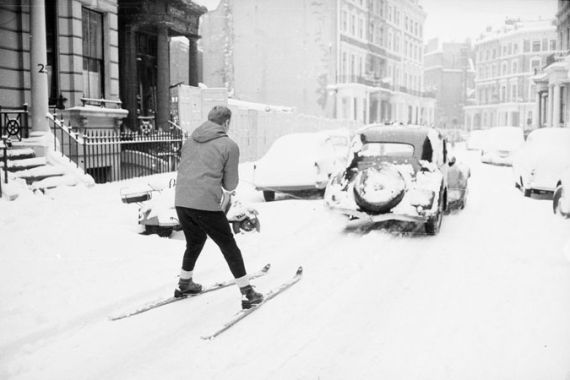50 years on from the UK’s big freeze
Half a century on from the harshest winter in two centuries we look back at life during the winter of 1962/3.

It was the start of the coldest winter of the century, and it began just a few weeks after the last major smog hit London.
Whilst smog was soon to become a thing of the past thanks to the Clean Air Act, very little could be done to mitigate the effects of bitterly cold weather which was to last through until the first week of March.
In the early 1960s car heaters were only just becoming standard fit in new motor vehicles. Many homes relied on a single coal fire to provide warmth and housing quality was often very poor.
Yet the harsh conditions were met with a stoicism and determination to carry on as normal. Many people had, after all, endured far worse hardship and privations during the Second World War.
The first icy blast from an anticyclone, centred over Scandinavia, and drawing cold air in from Siberia, arrived on 22 December.
The first snowfall hit southern England on Boxing Day and on into 27 December.
Blizzard conditions over 29 and 30th saw snow drifts of more than 6 metres in parts of Southwest England and Wales.
It is from this weather system that many of our weather gallery shots, courtesy of John Wilkes, are taken.
The gale force easterly winds blocked roads and railways, and with temperatures remaining sub-zero for the next two months, much of this snow remained in place until March.
January 1963 was the coldest month of the entire 20th century. Freezing fog was dense and persistent; temperatures fell as low as Minus 19C at Achany in Scotland and the sea froze in many places.
Hopes of an improvement in February were soon dashed as another blizzard swept across much of the country between the 4th and 6th. Further huge drifts were reported and winds of almost 200kph were experienced on the Isle of Man.
Relief came finally in March and the 6th of the month was the first morning of the year without any frost being reported.
Rising temperatures brought about a rapid thaw which resulted in significant flooding in many areas. But at least an end had arrived to what was the coldest UK winter in 200 years.